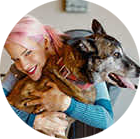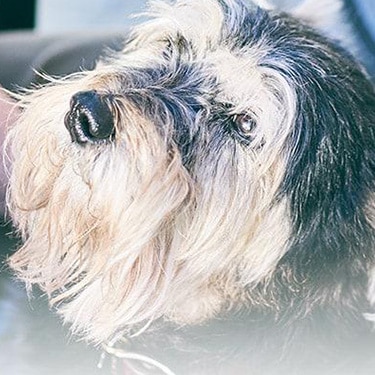
-
Find the right food for your petTake this quiz to see which food may be the best for your furry friend.Find the right food for your petTake this quiz to see which food may be the best for your furry friend.Health CategoryFeatured products
 Adult Large Breed Chicken & Barley Recipe Dog Food
Adult Large Breed Chicken & Barley Recipe Dog FoodSupports healthy joints, lean muscle, and beautiful coat for large breed dogs
Shop Now Hill's Science Diet Adult Healthy Mobility Large Breed Chicken Meal, Barley & Brown Rice Recipe Dog Food
Hill's Science Diet Adult Healthy Mobility Large Breed Chicken Meal, Barley & Brown Rice Recipe Dog FoodAdvanced nutrition shown to support joint health and improve mobility
Shop Now Adult Light Large Breed Chicken Meal & Barley Recipe Dog Food
Adult Light Large Breed Chicken Meal & Barley Recipe Dog FoodFewer calories for less active large breed dogs
Shop NowFeatured products Adult Oral Care Chicken & Brown Rice Recipe Cat Food
Adult Oral Care Chicken & Brown Rice Recipe Cat FoodClinically proven kibble technology to reduce plaque & tartar build-up
Shop Now Adult Perfect Digestion Chicken, Barley & Whole Oats Recipe Cat Food
Adult Perfect Digestion Chicken, Barley & Whole Oats Recipe Cat FoodHill's Science Diet's breakthrough nutrition supports ultimate digestive well-being & healthy microbiome
Shop Now Kitten Healthy Cuisine Tender Chicken & Rice Medley
Kitten Healthy Cuisine Tender Chicken & Rice MedleyDelicious tender chicken and rice in a mouthwatering sauce with precisely balanced nutrition to support 5 essential building blocks for lifelong health
Shop Now -
DogCat
- Cat Tips & Articles
-
Health Category
- Weight
- Skin & Food Sensitivities
- Urinary
- Digestive
- Kidney
- Dental
- Serious Illness
-
Life Stage
- Kitten Nutrition
- Adult Nutrition
Featured articles Fun Ideas for Kids and Pets This Summer
Fun Ideas for Kids and Pets This SummerOutdoor summer activities with your dog or cat can be fun for kids, too. Learn how they also teach kids responsibility & creates a bond with their pet.
Read More Cat vs. Dog: Which Is the Best Pet for Me?
Cat vs. Dog: Which Is the Best Pet for Me?Learn about important differences between dogs and cats, such as cost & space considerations. These factors can help you decide which pet is best for you.
Read More Adopting a Pet: What You Need to Know
Adopting a Pet: What You Need to KnowLearn the basics of adopting a pet, including where to begin and common questions you should ask yourself when deciding which kind of pet is best for you.
Read More -


There you are in the kitchen, marinating the chicken you'd intended for dinner. You turn your back to reach for the fridge and next thing you know, the tray of chicken is on the floor and your dog is eating it.
You're now probably concerned about your dog after they ate raw chicken.
If you ever see this happen, restrain your dog by holding them from the collar or harness and then carefully remove any chicken from their mouth. If you find that your dog ate raw chicken, read on to learn why raw chicken isn't safe for dogs.
The Infectious Dangers of Eating Raw Chicken
Eating raw chicken can lead to infectious issues for humans, more so than other meats. And it's no different for dogs. Eating raw chicken falls squarely in the "not good for dogs" category as a result of dangerous bacteria.
 Raw chicken meat can be a source of certain kinds of bacteria that can lead to gastrointestinal salmonella infections in both humans and dogs. In fact, up to 20% of baby chicks may test positive for salmonella, according to researchers at the University of Georgia as noted by News21.
Raw chicken meat can be a source of certain kinds of bacteria that can lead to gastrointestinal salmonella infections in both humans and dogs. In fact, up to 20% of baby chicks may test positive for salmonella, according to researchers at the University of Georgia as noted by News21.
While dogs are more carnivorous than humans and are therefore theoretically better at battling these bacteria, the risk still exists. Moreover, a dog who has never consumed raw meat and perhaps is not even accustomed to eating chicken is much less likely to tolerate a sizeable meal of the stuff.
Finally, it's important to note that dogs who consume raw meat are more likely to shed dangerous bacteria in their stool. Even the most minute amounts may end up on bedding and other areas humans come into contact. These bacteria have been shown to be a risk for human household members, especially for the very young, elderly and immunosuppressed.


Tasty Tips
Other Dangers of Eating Raw Chicken
If you find yourself on the phone with your veterinarian explaining how your dog got into some raw chicken, you'll need to be aware of other potential dangers. Salmonella aside, how bad is eating raw chicken overall?
That answer probably depends on how much your dog ate relative to their size. A few licks of raw juice, for example, is enough to pass along any unwanted bacteria, but ingesting a whole carcass is much worse for a variety of reasons, particularly because of the bones and fat.
While raw bones tend to be easier to digest than cooked bones, a small dog may nonetheless suffer mechanical trauma to their digestive tract from eating all that tough stuff, even potentially experiencing a complete bowel obstruction. Meanwhile, large amounts of fat may lead to the same issues that happen when dogs eat gobs of fatty turkey during Thanksgiving — namely, the possibility of pancreatitis.
If My Dog Ate Raw Chicken, Are There Side Effects?
A few side effects associated with a dog eating raw chicken include:

- Vomiting or regurgitation: The dog's body may attempt to expel the material shortly after ingestion, especially if a large quantity was consumed. While unlikely to lead to gastrointestinal perforation, bones can traumatize the delicate lining of the stomach and oesophagus.
- Diarrhoea: Fluid and electrolyte loss from diarrhoea is a major concern as it's the most common sign after raw chicken consumption. Soft stools are to be expected but unrelenting watery stools are a serious cause for concern.
- Dehydration: Electrolyte loss and dehydration may prove to be an issue if the vomiting is extensive or persists for a prolonged period of time, particularly for smaller dogs.
- Fever, loss of appetite and lethargy: These signs become more of an issue if salmonella or campylobacter is involved.
Most dogs who eat raw chicken recover without complications. While the rare dog may require long-term hospitalisation for bacterial infections, most can avoid a hospital stay and will recover relatively quickly at home once medications and fluids are administered.
Should My Dog See a Vet?
In most small-volume ingestion situations, most vets are likely to recommend that you watch your dog carefully over the week following the ingestion for signs of vomiting or diarrhoea. If these arise, or if large quantities were consumed, a vet visit is definitely in order.
If your dog is food motivated and can easily access food on a table or kitchen counter, it is a good idea to never turn your back on raw chicken ingredients when they're in the room. If you're cooking something especially yummy, like meats, consider keeping your dogs contained elsewhere. Better yet, find a no-reach spot in the kitchen for especially tantalising ingredients so incidents like this never happen again.


Dr. Patty Khuly is an award-winning veterinarian known for her independent thinking, her spirited pet advocacy, her passion for the veterinary profession, and her famously irreverent pet health writing.
Dr. K is an honors graduate of both Wellesley College and the University of Pennsylvania School of Veterinary Medicine. She received her MBA at The Wharton School of Business as part of the prestigious VMD/MBA dual-degree program. She now owns Sunset Animal Clinic, a veterinary practice in Miami, Florida.
Related products

Advanced nutrition shown to support joint health and improve mobility

Fewer calories for less active large breed dogs

Fewer calories for less active dogs

Supports healthy joints, lean muscle, and beautiful coat for large breed dogs
Related articles

Learn how to stop your dog from begging at the dinner table, and understand how it can help contribute to his health.

A little exercise can make a big difference. Not only will it enhance your pet’s health, but it will beef up your relationship as well.

Though it may seem like your four-legged friend loves nothing more than to nap on the couch, dogs need regular exercise to stay healthy just like people do.

Learn about choosing the right dog food to help ensure your mature older dog will receive the correct balance of nutrition.

Put your dog on a diet without them knowing
Our low calorie formula helps you control your dog's weight. It's packed with high-quality protein for building lean muscles, and made with purposeful ingredients for a flavorful, nutritious meal. Clinically proven antioxidants, Vitamin C+E, help promote a healthy immune system.
Put your dog on a diet without them knowing
Our low calorie formula helps you control your dog's weight. It's packed with high-quality protein for building lean muscles, and made with purposeful ingredients for a flavorful, nutritious meal. Clinically proven antioxidants, Vitamin C+E, help promote a healthy immune system.

